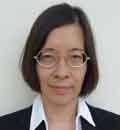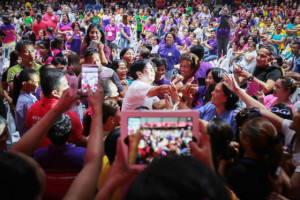SENATOR Ferdinand “Bongbong” Marcos Jr. said the country needs more scientists to help spur economic activities.
The senator from Ilocos Norte said there are only 80 scientists per million while other countries have some 4,000 per million.
The United Nations Educational, Scientific and Cultural Organization (Unesco) suggests a
ratio of 380 science and technology (S&T) professionals per every million population.
“Science and technology should play a major role in our national policy because it is one of the basic factors that fuels a country’s development, it sets the pace of the economic growth of a country and we Filipinos can only achieve this if we have enough scientists studying and looking for innovations how to help achieve our goals,” he said.
Marcos observed that all of the country’s 15 science high schools are in Metro Manila.
“We need to build more science schools especially in the provinces to give those who are equally qualified and interested in the field of science and technology develop their skills and interests,” he pointed out.
Marcos’ statement has enough basis based on the SCImage Journal & Country Rank (SJR), a popular international website of scientific works, which placed the Philippines 69th in the entire world and number 14th in Asia.
Even Pakistan (10th), Bangladesh (12th), and Vietnam (13th) are better.
SJR said the Philippines has produced only 17,783 scientific documents compared to the United States with 8.6 million scientific works, China with 3.6 million, and Japan with two million.
Marcos said the Philippines had even regressed because Filipino scientist have left the country for “greener pastures.”
In 2009, the country lost 25,000 S&T professionals who sought employment abroad.
Marcos’ solution to this problem is to increase the budget and coverage of scientific programs.
“From what I know, the DOST [Department of Science and Technology] has an approved scholarship budget for around 2,000 students to pursue their masters and doctorate degrees in science and technology but that figure pales in comparison to the hundreds of thousands being produced by other countries in the Asian region,” he said.
Marcos suggested that research and development activities should be focused on poverty reduction, agriculture development, climate change and in the field of medicine.
“It is lamentable that science and technology have not been a priority for many years and this should change if we want to turn things around for our country. It is the backbone of economic growth and our scientists should be allowed to play a bigger role in this initiative,” he added.



